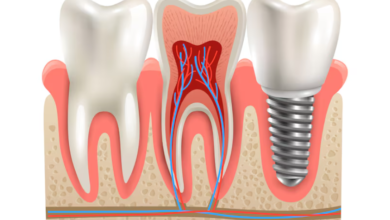OCD Therapy Effective Approaches and Techniques for Lasting Relief

OCD Therapy, or obsessive-compulsive disorder (OCD) therapy, focuses primarily on reducing symptoms and improving daily functioning through specialized treatment methods. The most effective approaches combine cognitive-behavioral therapy (CBT), specifically exposure and response prevention (ERP), with medication such as selective serotonin reuptake inhibitors (SSRIs).
These therapies work together to help individuals confront their obsessions and resist compulsions, gradually decreasing the distress and behaviors that define OCD. Understanding how therapy can be tailored to each person’s needs is crucial for managing this complex condition effectively.
Types of OCD Therapy
OCD treatment involves several approaches designed to reduce symptoms and improve daily functioning. Key methods include specialized therapy that addresses both thoughts and behaviors, as well as medication options that adjust brain chemistry.
Cognitive Behavioral Therapy for OCD
Cognitive Behavioral Therapy (CBT) focuses on identifying and changing the distorted thoughts and beliefs that trigger OCD behaviors. It helps patients understand the relationship between their obsessions and compulsions.
CBT uses techniques such as cognitive restructuring to challenge and modify harmful thought patterns. This therapy requires active participation and aims to teach coping strategies that reduce anxiety caused by obsessive thoughts.
Therapists trained in OCD provide structured sessions usually lasting several weeks. Success depends on the patient’s commitment to practicing skills learned both during and outside therapy sessions.
Exposure and Response Prevention
Exposure and Response Prevention (ERP) is a behavioral therapy that involves gradually exposing individuals to feared objects or thoughts without allowing the usual compulsive response. This process reduces anxiety over time and breaks the cycle of OCD behaviors.
ERP is often considered the most effective therapy for OCD, suitable for various OCD types, including contamination fears and checking rituals. The exposure starts with less distressing situations and increases in difficulty.
Patients are guided to resist compulsions, helping their brains learn that anxiety decreases naturally without performing rituals. ERP requires consistent practice and professional support to ensure safety and effectiveness.
See also: Best Lawn Care Mississauga Services for a Healthy, Lush Yard
Medication Options for OCD
Medications for OCD mainly include selective serotonin reuptake inhibitors (SSRIs). SSRIs adjust serotonin levels in the brain, which can reduce OCD symptoms.
Common SSRIs prescribed include fluoxetine, sertraline, and fluvoxamine. These drugs often take several weeks to show effects and are usually combined with therapy.
In some cases, other medications like clomipramine, a tricyclic antidepressant, may be used if SSRIs are ineffective. Medication choice depends on symptom severity, patient history, and side effect profile.
Choosing the Right OCD Therapy
Selecting the appropriate therapy depends on the individual’s symptom intensity, personal circumstances, and access to professional support. Effective treatment often combines therapeutic methods with qualified practitioners and a strong support network.
Assessing Severity and Needs
Evaluating how much OCD interferes with daily life is crucial. Mild OCD might respond well to cognitive behavioral therapy (CBT) alone. More severe cases often require exposure and response prevention (ERP), sometimes combined with medication.
Patients should consider symptom patterns, triggers, and previous treatment responses. This assessment guides the selection between therapies like CBT, ERP, or acceptance and commitment therapy (ACT).
Understanding whether trauma or comorbid conditions exist is important. Such complexities may require trauma-focused therapy or specialized approaches. Accurate evaluation ensures treatment matches specific needs.
Finding Qualified OCD Therapists
Choosing a therapist experienced in OCD is essential for effective care. Look for professionals trained specifically in evidence-based therapies such as ERP or CBT.
Credentials and certifications from recognized organizations indicate expertise. Therapists who participate in ongoing OCD research or professional networks often provide updated and informed treatments.
Discussing treatment goals and methods during initial consultations helps ensure compatibility. Accessibility, cost, and insurance coverage also influence the choice.
Online platforms may offer validated options, expanding access for those in remote areas or with mobility constraints.
Integrating Support Systems
Support from family, friends, or groups enhances therapy outcomes. Educating loved ones about OCD mechanisms promotes understanding and reduces stigma.
Support groups provide shared experiences and coping strategies. They help patients feel less isolated and reinforce treatment gains.
Involving support networks in therapy sessions can improve communication and accountability. Combined professional and social support creates a stronger foundation for managing symptoms.





